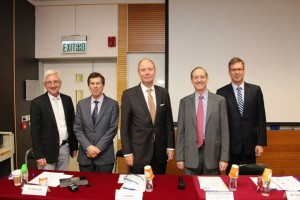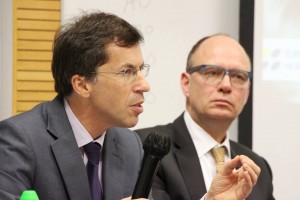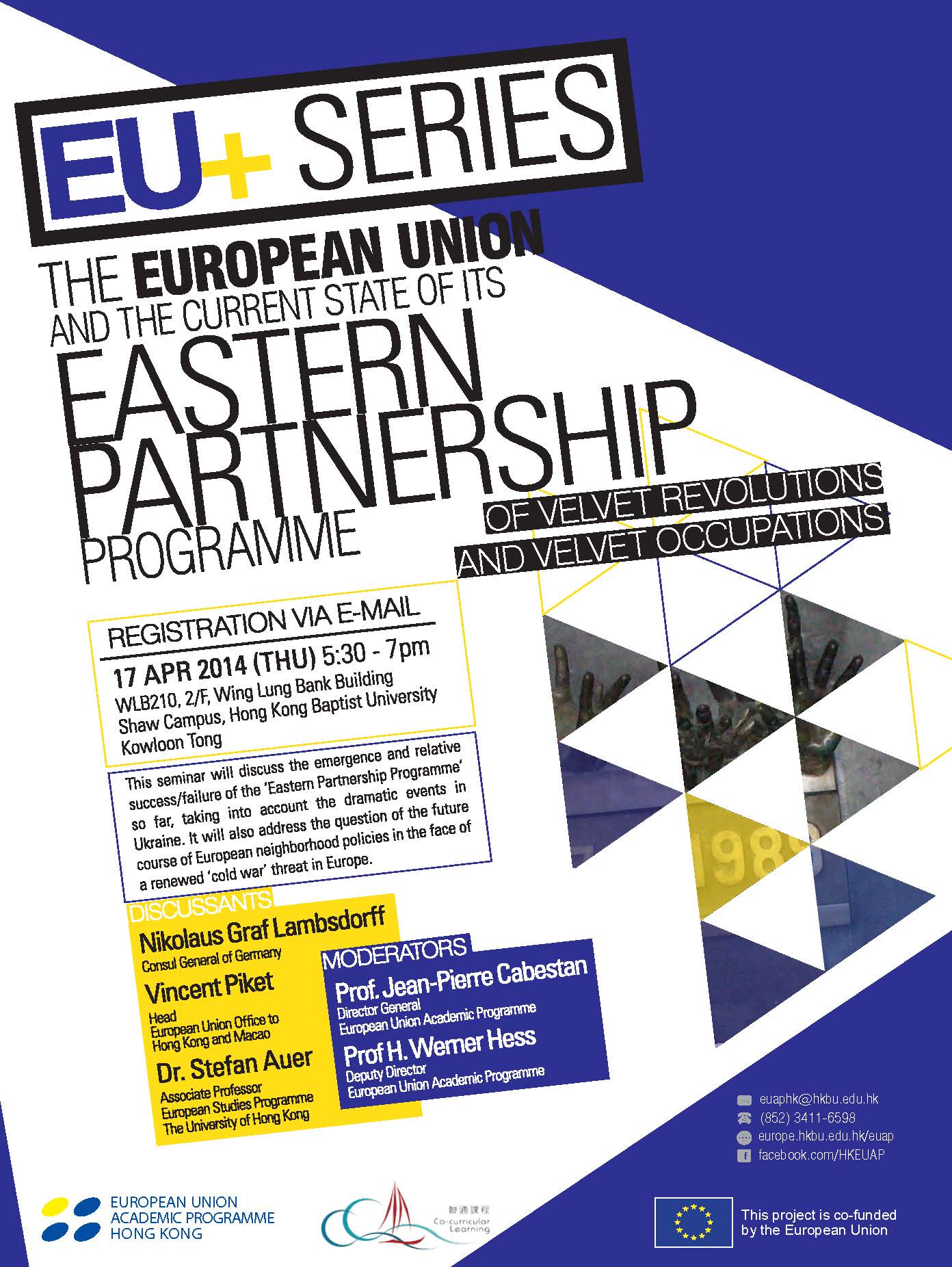Date/Time
Date(s): 17/04/2014
Time: 5:30 pm - 7:00 pm
Location
WLB210, Wing Lung Bank Building, Shaw Campus
Language: English
Admission:
EU+ Series “Of Velvet Revolutions and Velvet Occupations – The European Union and the Current State of its Eastern Partnership Programme “
Speakers:
-Nikolaus Graf Lambsdorff (Consul General of Germany)
-Vincent Piket (Head, Office of the European Union to Hong Kong and Macao)
-Dr. Stefan Auer (Associate Prof, European Studies Programme, The University of Hong Kong)
Moderator:
-Prof. Jean-Pierre Cabestan (EUAP Director General)
-Prof. H. Werner Hess (EUAP Deputy Director)

The purpose of the seminar held by the EUAP on 17th April was to take a closer look at the European Union Eastern Partnership programme and bring about discussion on challenges to EU foreign policy in Eastern Europe. Moreover, speakers analyzed the significance and the likely impact of the currently unstable situation in Ukraine on relations between the European Union and Russia.
Prof. Hess provided the audience with the historical background of the situation in Eastern Europe with special attention to the EU enlargement in 2004, the origins of the EU Eastern Partnership and the ongoing Ukrainian crisis.
Mr. Piket presented a comprehensive overview of the role of the Eastern Partnership programme within the framework of the European Neighborhood Policy. He emphasized cooperation between the EU and its eastern neighbors in areas of political and economic integration, security, facilitation of contacts between people and policy knowhow exchange. Moreover, various dimensions of EU support to Ukraine were introduced.
Graf Lambsdorff argued that the way in which the European Union acts in international politics is based not on deterrence and containment but on cooperation and assistance. He described Ukraine as a country which has been always divided and subjected to outside pressures. In his opinion, the imposition of sanctions by the EU on Russia should be a warning signal, informing about the cost of taking illegal actions in Ukraine.
Dr. Auer reminded the audience of the legacy of the 1989 peaceful ‘revolutionary’ movements in Eastern Europe. He argued that the Ukrainian crisis is a challenge to the EU’s soft power and diplomacy. He drew attention to the dilemma of choosing appropriate responses in confrontation with a major power not sharing the same commitment to EU fundamental values. Finally, he stressed that Europe must maintain a strong and unified position.

Subsequently, the discussion moderated by Profs Cabestan and Hess focused on consequences of imposing sanctions on Russia and possible further NATO involvement. It was emphasized that the strength of the EU is based largely on soft power rather than military capability. Speakers agreed that sanctions may not achieve much in the short term, but they will have strong long-term impact. However, the EU has to be cautious while imposing them, taking into account its own economic and business interests. Most importantly, peaceful and democratic elections in Ukraine, the promotion of the rule of law and respect for essential freedoms need to be supported.
E-Invitation / Poster / Event Summary
Visit our Facebook Album for more pictures
ENQUIRIES
3411 6598
euaphk@hkbu.edu.hk


